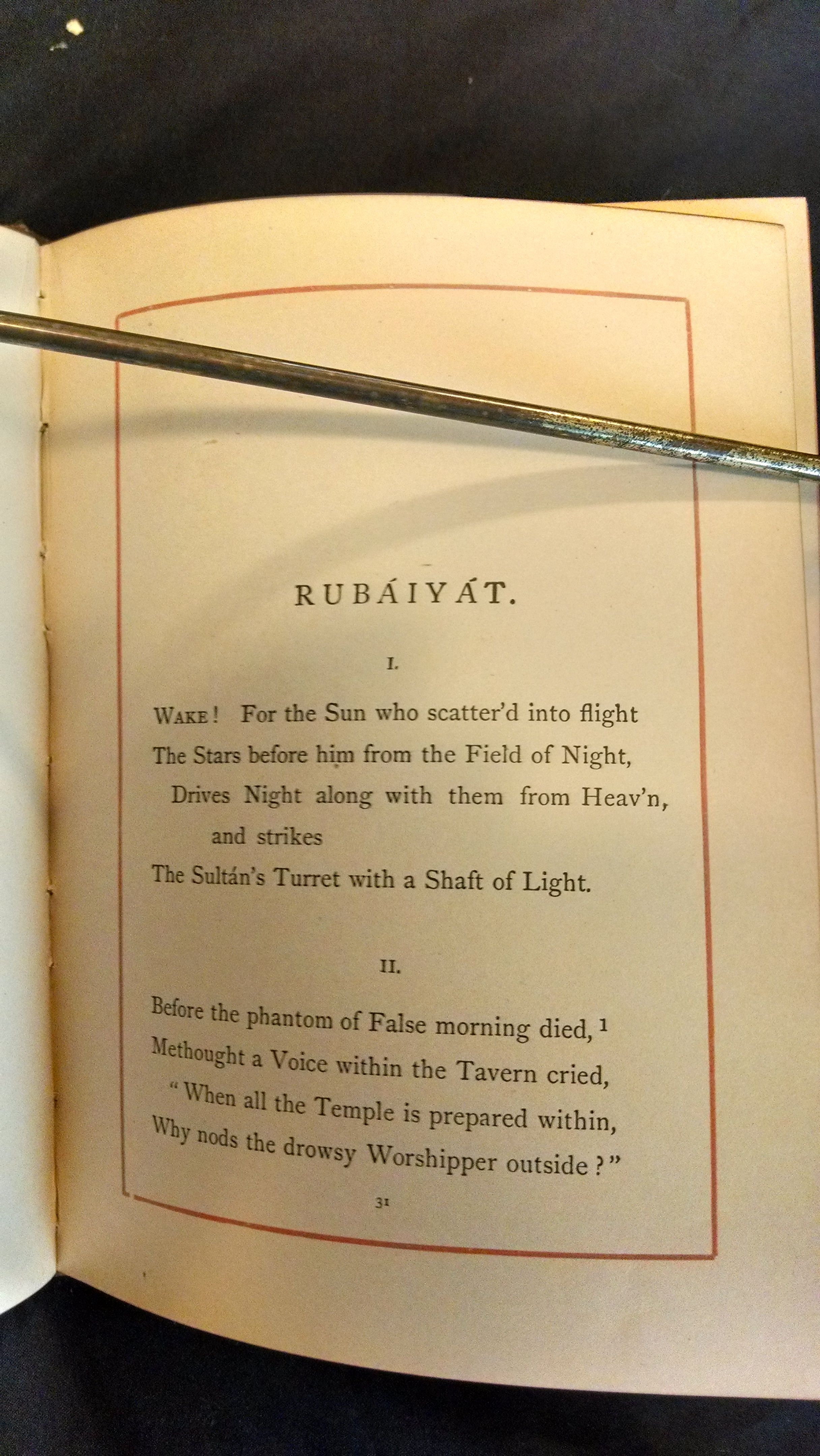

Mehdi Aminrazavi in The Wine of Wisdom: The Life, Poetry and Philosophy of Omar Khayyam (Oxford: Oneworld, 2005) agrees that the poetry of Omar Khayyam is compatible with a Sufi worldview and in fact that he was interpreted this way even during his own lifetime. This mystical, esoteric reading of Khayyam seems likely to have merit to me, since Khayyam did write some orthodox Islamic texts. Abdullah Dougan, a Sufi thinker, has written a defence of Khayyam’s religiosity, claiming that the Rubaiyat of Omar Khayyam has been misread without receptivity to the allegorised undertones of spirituality.

Daniel Karlin's richly annotated edition does justice to the scope and complexity of FitzGerald's lyrical meditation on 'human death and fate'.Illustration of The Rubaiyat of Omar Khayyam by Rene Bullĭebate has often centred around the extent of Omar Khayyam’s Sufism, since the FitzGerald translation often indicates more materialistic, sensual and agnostic concerns.

The poem sold no copies at all on its first appearance in 1859, yet when it was 'discovered' two years later its first admirers included Dante Gabriel Rossetti, Swinburne, and Ruskin. Although the poem's vision is bleak, it is conveyed in some of the most beautiful and haunting images in English poetry - and some of the sharpest- edged. His version of Omar is neither a translation nor an independent poem sceptical of divine providence and insistent on the pleasure of the passing moment, its 'Orientalism' offers FitzGerald a powerful and distinctive voice, in whose accents a whole Victorian generation comes to life.

He Moving Finger writes and, having writ Moves on: nor all thy Piety nor Wit Shall lure it back to cancel half a line Nor all thy tears wash out a word of it.' In the 'rubaiyat' (short epigrammatic poems) of the medieval Persian poet, mathematician, and philosopher Omar Khayyam, Edward Fitzgerald saw an unflinching challenge to the illusions and consolations of mankind in every age.


 0 kommentar(er)
0 kommentar(er)
